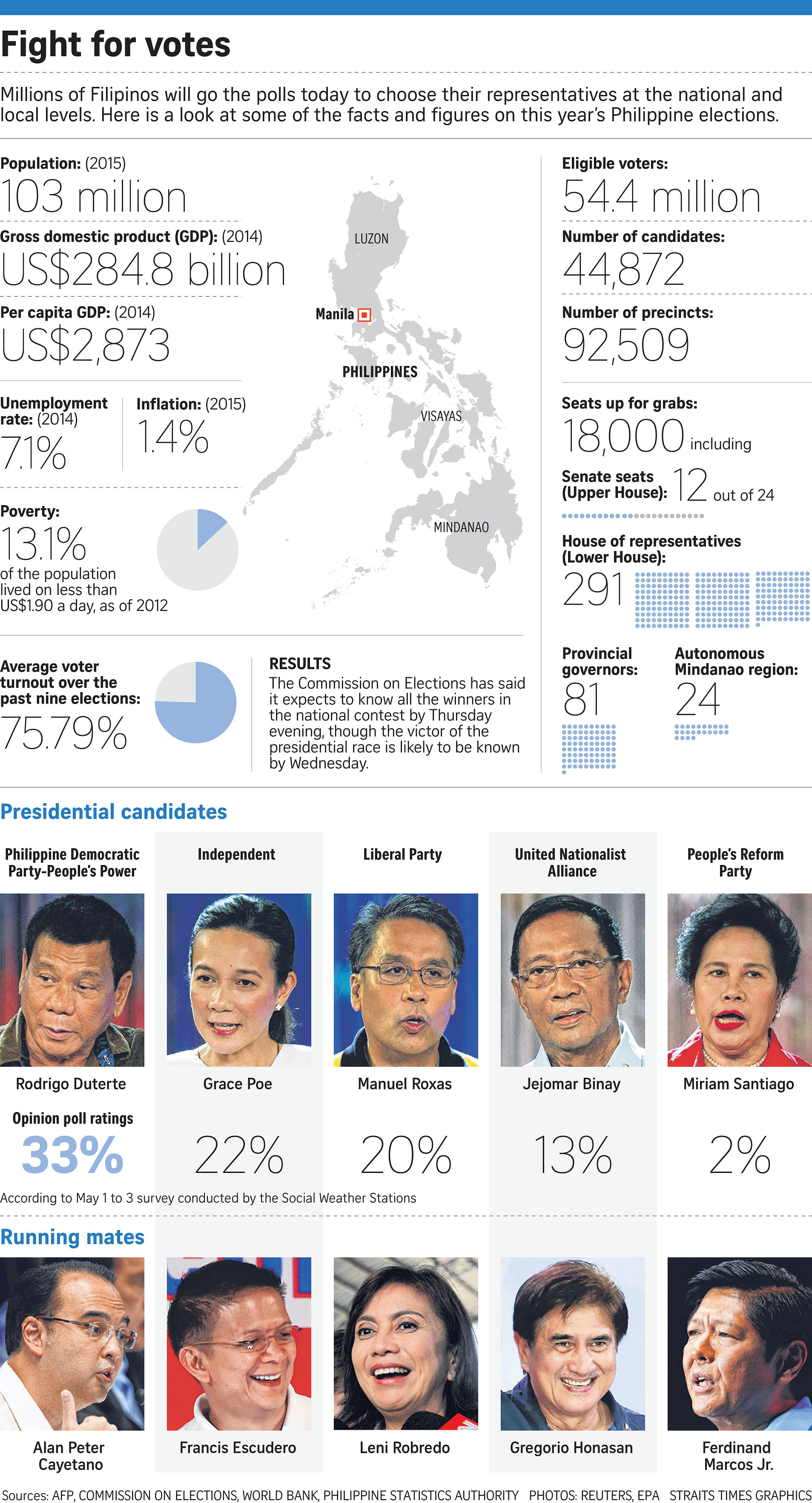MANILA • The favourite in today's Philippine presidential election, Mr Rodrigo Duterte, has flippantly brushed aside campaign trail allegations of accepting million-dollar gifts, while his rivals have refused to disclose their backers, deepening concerns over business titans' shadowy grip on politics.
The Philippines has one of Asia's biggest rich-poor divides, with poverty rates stuck in recent years despite strong economic growth. Analysts say one of the reasons for the disparity is the debt that politicians owe their secret backers.
Under the nation's campaign financing laws, there are no caps on how much people or companies can give to candidates, nor are there limits on individual donations. They also do not have to reveal their backers until a month after polling day.
Mr Duterte has portrayed himself as a frugal, anti-establishment politician. But in the final stages of the campaign trail, the mayor of the southern city of Davao, who is supposed to earn less than US$2,000 (S$2,700) a month, faces charges that millions of dollars had poured into secret bank accounts.
He initially denied any hidden accounts. But after a journalist deposited money in them, he admitted they did exist and that 193.7 million pesos (S$5.6 million) were deposited on his birthday two years ago, nearly 10 times his declared assets.
"That only means I have many rich friends," he said, refusing to disclose who they were.
His rivals similarly have felt no obligation to tell voters who their backers are, let alone how much they have received from them.
Senator Grace Poe has been widely rumoured to be backed by business tycoons Eduardo Cojuangco and Ramon Ang of San Miguel Corporation, former cronies of the late dictator Ferdinand Marcos.
When asked to confirm that Mr Cojuangco and Mr Ang were funding her campaign, Ms Poe spoke only in general terms that there was nothing wrong with taking money from people linked with Marcos.
Marcos' son, Ferdinand Marcos Jr, who is seeking election as vice-president, also referred only to his legal obligations when asked to disclose his backers.
In the Philippines, campaign spending is meant to be capped at 10 pesos per voter, which this year will mean a maximum budget for each presidential candidate equivalent to about US$11 million.
However, the uncapped donations mean the funding can come from big money donors in hopes of currying favours with an entire government, said Dr Ronald Mendoza, the new dean of the Ateneo School of Government in Manila.
A mere 308 Filipinos funded the 2010 presidential election, according to a study by the Manila-based Philippine Centre for Investigative Journalism.
AGENCE FRANCE-PRESSE


